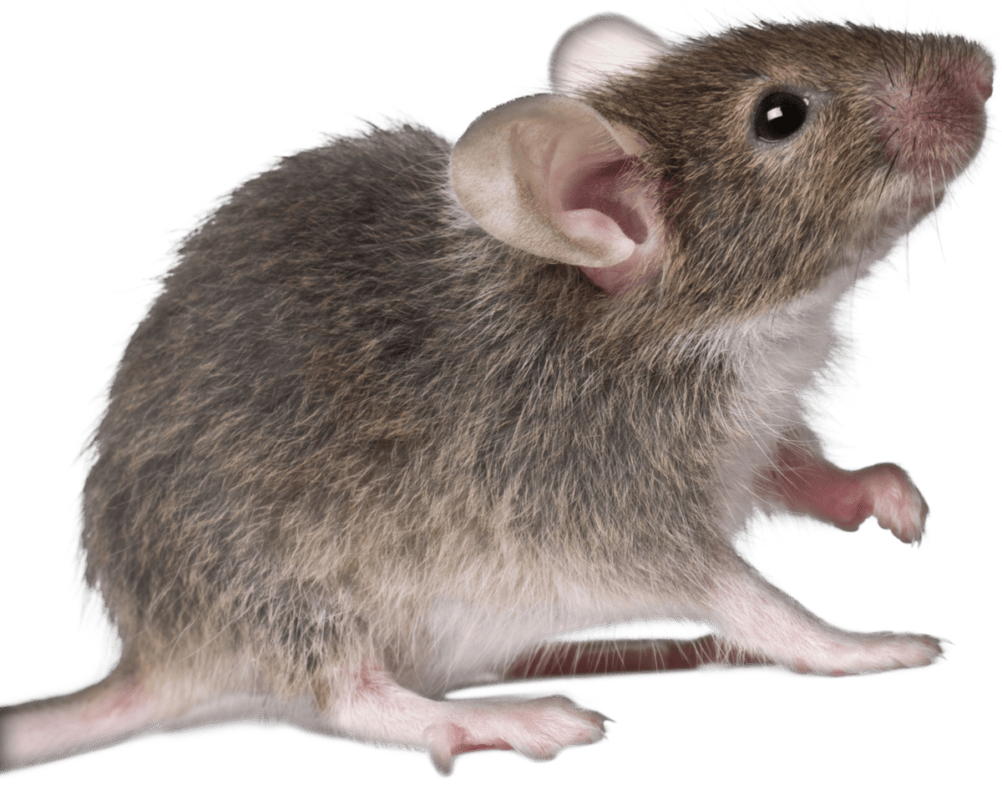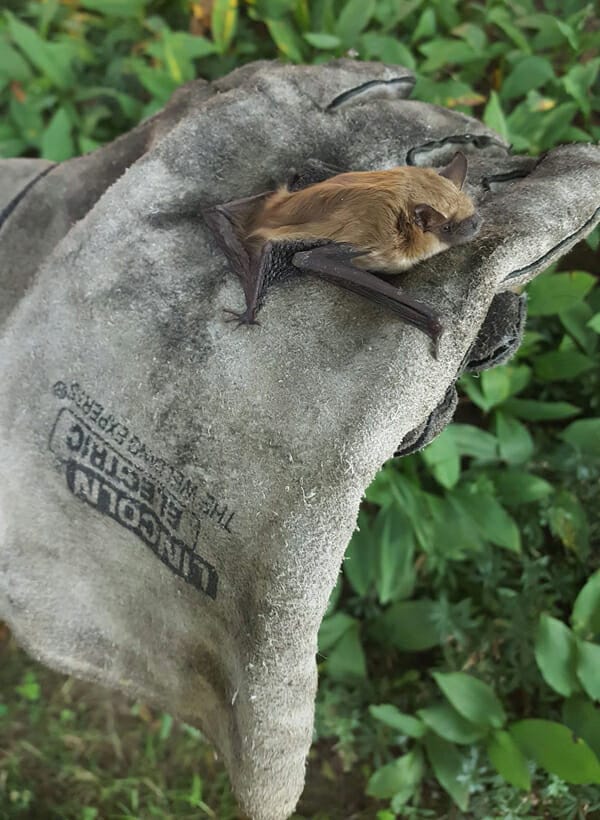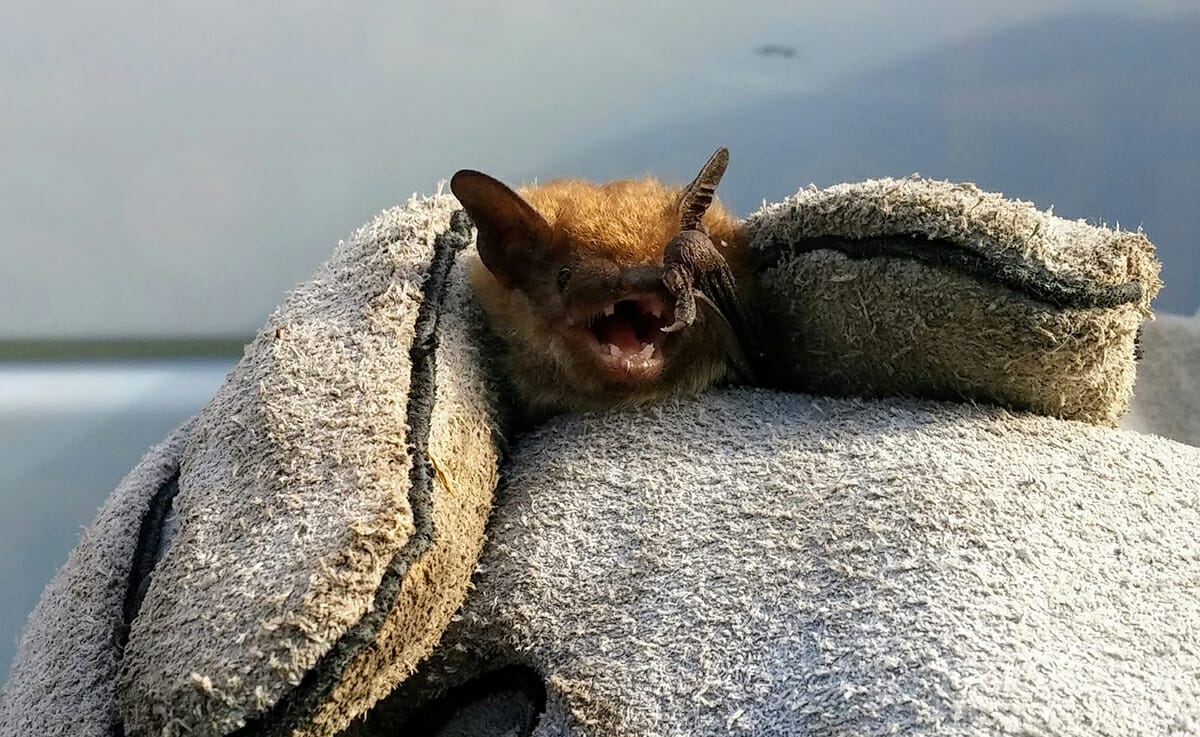Bat Removal
Give us a call!
Bad Company Wildlife Eviction Specialists is located in Dundas, Ontario.
We provide humane wildlife removal and animal control in the following regions: Hamilton, Halton, Brant, Niagara, Haldimand-Norfolk and Peel.
Special arrangements available for customers outside of these areas.
Prefer to give us a call?




#1 rated in
customer service
WhatsApp :+18162970468
Email: [email protected]
Gmail:[email protected]
Telegram :@Murphy_Sherry

We had a raccoon take up residence under the solar panels on our roof. Bad Company came and installed cages around the edges of the panels.
Unfortunately, the raccoon was there when they did the installation so they installed a temporary one-way door to allow the raccoon to escape.
The raccoon was persistent in wanting to stay but Bad Company return to our house to monitor the situation and to eventually entice the raccoon out.
Their dedication to getting the job completed when faced with a difficult situation impressed me and so I would not hesitate in recommending their services.
WhatsApp: +1(214)7022788 or Email: [email protected]
I am sincerely grateful I found this amazing and efficient trading platform. I get good profit weekly with a smooth withdrawal procedures.
I can boast fully reccomend MRS. LIAM OLIVIA to my fellow traders
YOU ARE THE BEST
thanks for all you do
EMAIL:[email protected]
Or contact her on WhatsApp: +12037048691
From the first call right until when they finished the job, I have been nothing short of impressed. They provided me with a very reasonable quote, were super communicative, extremely professional and very speedy to complete their jobs. As well, they are very respectful of Covid rules/regulations.
The guys who came were super professional, provided me a quote on the spot with a detailed breakdown of services and were able to schedule a time to perform the services.
The work itself was fantastic. Not only was there a slope and rather tight area in which they had to work, but there was existing masonry that had to be dealt with. The guys got to work, did a ton of work extremely quickly and effectively, cleaned up the mess and actually made it look good. They dug down, installed a mesh to prevent animal entry, installed a one way door and actually improved the aesthetics of the shed when doing it.
I highly recommend Bad Company for any sort of Wildlife Eviction need. I can’t vouch for their services with insects and the like, but I know that if I do have a problem, I’m calling them first. Thanks Stu and team, I really appreciate your work!
We had a European starling (size of robin ) stuck in our rain gutter. We heard panicking and scratching.
We called Bad company and they came to help. Missie, a very dynamic woman came to the rescue. She approached the situation with so much finesse. Looking to help, all the while keeping the bird safe !! They rescued the bird. We called the bird lucky :)).
Day 2: the same bird came back and lodged itself in the same place. Matt (owner) came and rescued the day.
Now we have blocked the opening. If you are having wildlife issues. Don’t look any further.
This company is professional and they approach any animal rescue with incredible sensitivity.
Thank you for all of your help.
Gregory & Mélanie.
WhatsApp :+18162970468
Email: [email protected]
Gmail:[email protected]
Telegram :@Murphy_Sherry

We had a raccoon take up residence under the solar panels on our roof. Bad Company came and installed cages around the edges of the panels.
Unfortunately, the raccoon was there when they did the installation so they installed a temporary one-way door to allow the raccoon to escape.
The raccoon was persistent in wanting to stay but Bad Company return to our house to monitor the situation and to eventually entice the raccoon out.
Their dedication to getting the job completed when faced with a difficult situation impressed me and so I would not hesitate in recommending their services.
WhatsApp: +1(214)7022788 or Email: [email protected]
I am sincerely grateful I found this amazing and efficient trading platform. I get good profit weekly with a smooth withdrawal procedures.
I can boast fully reccomend MRS. LIAM OLIVIA to my fellow traders
YOU ARE THE BEST
thanks for all you do
EMAIL:[email protected]
Or contact her on WhatsApp: +12037048691
From the first call right until when they finished the job, I have been nothing short of impressed. They provided me with a very reasonable quote, were super communicative, extremely professional and very speedy to complete their jobs. As well, they are very respectful of Covid rules/regulations.
The guys who came were super professional, provided me a quote on the spot with a detailed breakdown of services and were able to schedule a time to perform the services.
The work itself was fantastic. Not only was there a slope and rather tight area in which they had to work, but there was existing masonry that had to be dealt with. The guys got to work, did a ton of work extremely quickly and effectively, cleaned up the mess and actually made it look good. They dug down, installed a mesh to prevent animal entry, installed a one way door and actually improved the aesthetics of the shed when doing it.
I highly recommend Bad Company for any sort of Wildlife Eviction need. I can’t vouch for their services with insects and the like, but I know that if I do have a problem, I’m calling them first. Thanks Stu and team, I really appreciate your work!
We had a European starling (size of robin ) stuck in our rain gutter. We heard panicking and scratching.
We called Bad company and they came to help. Missie, a very dynamic woman came to the rescue. She approached the situation with so much finesse. Looking to help, all the while keeping the bird safe !! They rescued the bird. We called the bird lucky :)).
Day 2: the same bird came back and lodged itself in the same place. Matt (owner) came and rescued the day.
Now we have blocked the opening. If you are having wildlife issues. Don’t look any further.
This company is professional and they approach any animal rescue with incredible sensitivity.
Thank you for all of your help.
Gregory & Mélanie.
Bats can eat up to 1,000 insects and mosquitoes in one night! That’s pesky pest control – all without insecticides or pesticides. While having bats in your yard is great, it’s understandable that you don’t want them living in your home.
This is why you should use Bad Company Wildlife Eviction Specialists to humanely remove them.
HAMILTON AND AREA'S PREMIER ANIMAL REMOVAL SPECIALISTS
How does our bat removal service work?
Bats hibernate in the winter and are drawn to warm and dark places, so it’s typical to find them asleep in attics, rafters, sheds or caves.
We install a one-way bat exit on the point of entry.
We install preventative screening around the perimeter of the shed, deck or porch to ensure bat re-entry does not occur.
- We return to remove the one-way bat exit, and permanently seal the entry. Caio bella!

Matt from Bad Company shows us how to spot bats.
Bat Removal
Bats can eat up to 1,000 insects and mosquitoes in one night! That’s pesky pest control – all without insecticides or pesticides. While having bats in your yard is great, it’s understandable that you don’t want them living in your home.
This is why you should use Bad Company Wildlife Eviction Specialists to humanely remove them.
HAMILTON AND AREA'S PREMIER ANIMAL REMOVAL SPECIALISTS
How does our bat removal service work?
Bats hibernate in the winter and are drawn to warm and dark places, so it’s typical to find them asleep in attics, rafters, sheds or caves.
We install a one-way bat exit on the point of entry.
We install preventative screening around the perimeter of the shed, deck or porch to ensure bat re-entry does not occur.
We return to remove the one-way bat exit, and permanently seal the entry. Caio bella!
Bad Company Wildlife Eviction Specialists is located in Dundas, Ontario.
We provide humane wildlife removal and animal control in the following regions: Hamilton, Halton, Brant, Niagara, Haldimand-Norfolk and Peel.
Get in touch
We can help with your raccoon squirrel bat mouse skunk rat bird problem!
Prefer to give us a call? 1-855-880-9860
Bad Company Wildlife Eviction Specialists is located in Dundas, Ontario.
We provide humane wildlife removal and animal control in the following regions: Hamilton, Halton, Brant, Niagara, Haldimand-Norfolk and Peel.
Special arrangements available for customers outside of these areas.





